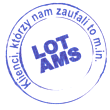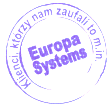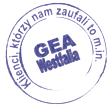Training - platforms on railway vehicles
Any repair, construction or maintenance work having to do with railway infrastructure requires specialised equipment. One of these, which helps to access faults, are platforms (also colloquially known as jacks, steepers, ascenders or cherry pickers), which move along the rails. They are typically used for repair, maintenance and inspection of electric traction.
A platform that moves along the tracks has a working platform installed on which a maintenance or service technician can be lifted and moved to the work area. By moving on the tracks, the lift gains ease and speed of movement. This definitely makes work easier and faster.
Working as a mobile platform operator is a profession that is quite popular on the labour market
Anyone wishing to work on such platforms must first obtain a qualification preceded by specialised training. Our courses are aimed at both individuals and groups and can take place at our centre or at the client's premises.
In the classroom, you will learn the necessary knowledge about the construction and operation of the machines, and after the theoretical course, you will have exercises on our machines, where you will put your knowledge into practice. The training course ends with an exam, which gives you the right to work at heights.
Our training is tested and approved by the Office of Technical Inspection.
What machines can you operate after completing your training?
- vehicle-mounted (including rail) mobile platforms,
- mobile free-wheeling platforms,
- mobile lifting platforms.
Scope of training:
information on technical supervision (qualification requirements for persons working with handling equipment and which equipment is subject to supervision),
- general knowledge of platforms (construction of mechanical and electrical components),
- construction and operation of platforms,
- hazards when working with platforms,
- working under special conditions (transporting people in a basket, working in collision conditions and near power lines),
- safety devices,
- operation and operator responsibilities,
- Working at height - safety rules,
- health, safety and fire regulations,
- operator's duties before, during and after work,
- practical activities.
Requirements from trainees:
- at least 18 years of age,
- at least a basic education,
- no health contraindications to work in the position.
Each course concludes with an examination before a board of the Office of Technical Inspection, and a positive result means that the licence is issued.
After passing the exam you will receive:
- a card that is a rating for the following types of aerial work platforms: mobile, vehicle-mounted and mobile,
- a certificate of training, including a framework programme for the course.
We will help you fill in the application form allowing you to take the exam and will act as agents for all the formalities involved.
Categories of entitlement

- platforms on railway vehicles - validity 10 years
- stationary mobile platforms - validity 10 years,
- Hanging mobile platforms - validity 10 years,
- masted mobile platforms - validity 10 years,
- mobile platforms - validity 5 years.
Our company also offers licence renewals. If you have worked continuously with mobile platforms for at least 3 of the last 5 years, you can extend your rating for another 5 or 10 years depending on the above types of platforms.
About us
Our training courses have been very popular for years because of the well-qualified staff we have. With us, you will pass with ease, and the investment you put into the course and exam will quickly pay you back through a well-paid job with a railway platform operator qualification.
It is also worth mentioning here that, in addition to operator courses, we also offer training for maintenance operators. Significantly, one person can easily obtain qualifications for both categories, which will be an added advantage in the labour market.
We invite you to sign up and if you have any questions, please contact us.
Questions and answers
What scope is covered in trainings for train platform operators?
We will teach you theory and practice with mobile platforms on railway vehicles, but not only. With our qualifications, you will also be able to operate slow-moving and mobile platforms.
What documents will I receive after passing the UDT exam?
Once you have successfully passed the examination, you will receive a card which is your entitlement to practice your profession and a training certificate with a framework programme.
What is the range of topics on the railway platform operator training course?
You will acquire the theoretical knowledge necessary to operate platforms, including information on technical supervision, learn about the construction and function of platforms, become familiar with health and safety regulations, emergency situations that may occur during work, and finally you will have practical exercises.
How long are the entitlements valid?
The majority of platform authorisations are valid for 10 years, including those on railway vehicles; for mobile platforms only, it is five years.






































